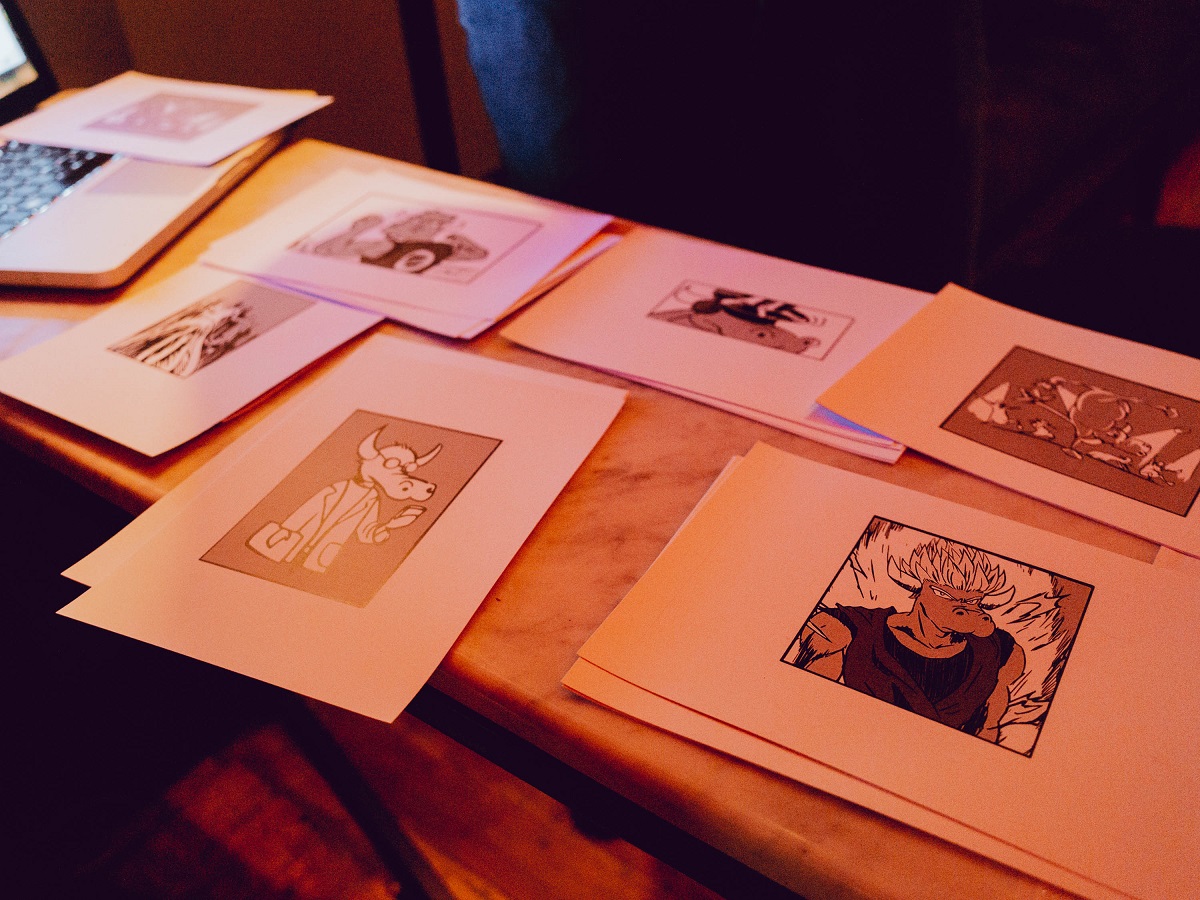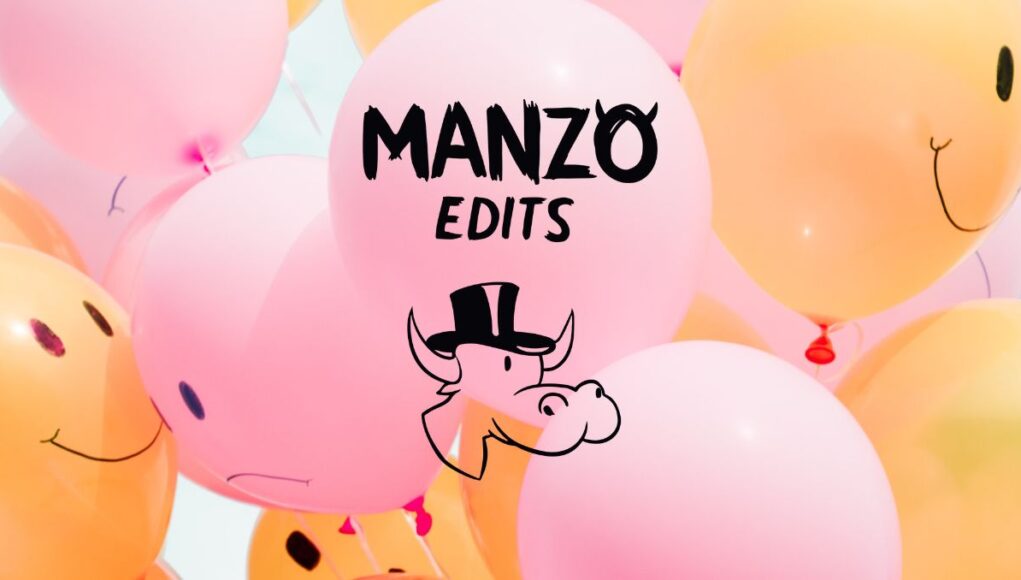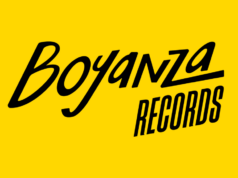Hi Black Pomade, when was the first idea to create the label?
Well, I think anyone involved in music always has a little voice in the back of their head whispering, „Wouldn’t it be grand to have your own label?“ It was no different for me. Around Christmas 2022, a few friends coincidentally sent me some intriguing edits—more like reworks, really. Some were practically tracks in their own right. I thought they were really valid tunes, something I’d definitely spin in my sets and they deserved a proper packaging. That was what got things started, plus I’ve always enjoyed the thrill of hunting down those mysterious edit series, so I thought it’d be fun to be on the other side of the chase for once.
Do you have any statistics since the label was created—how many releases, how many vinyl, and how many units have been sold?
Absolutely, I can give you a clear picture. We typically print between 250 and 300 copies per release. The first volume is completely sold out. As for the others, based on the latest report from the distributor, we’ve got about 30 copies left of Volume 2 and around 60 each of Volumes 3 and 4. So, we’re running low—if you want to snag a copy, better not snooze on it!
From which country do most buyers come from?
Italy is our biggest market, which isn’t too surprising given that I’m Italian, and so is our distributor. Portugal, where I spent about eight years, also shows a lot of love for the Manzo Edits. But the real curveball? Japan. Jet Set started buying the records before I even had a chance to visit, and they kept selling out. When I finally made it over there, I visited some other record shops, met the owners, and they were eager to stock up. Those sold out too! Looking at Discogs and the mentions we receive, it’s amazing to see how far the records have traveled—UK, US, Brazil, Belgium, Greece… I even shipped a few copies of Volume 4 to Kuala Lumpur, Malaysia, just the other day.

Which release are you most proud of?
That’s like asking a parent to pick their favourite child! They’re all special in their own way. But if I had to choose, I’d go with the first volume. It was a real leap into the unknown—lots of lessons learned, lots of uncertainty. The reception was fantastic though, and it sold out fairly quickly, which was a great confidence boost. It showed me that we were onto something good and encouraged me to keep the project going.
Can you describe what a typical office life means for you?
My “office” has been my home for the last four years, so I don’t really know—and honestly, I’m quite happy to keep it that way. I love the flexibility of working on the go, with the freedom to choose when and where I work. Someday, I’d like to set up a proper studio with more gear, but for now, life is too unpredictable, so I’ll stick to keeping things minimal and mobile.
Do you produce yourself or are you a DJ?
I’m both, really. Each side of the coin lets me express myself musically in different ways, and they complement each other nicely. Without production, it’s hard to break out of your local scene. That said, just because someone’s a great producer doesn’t mean they’re a great DJ—believe me, I’ve had my share of disappointments. But production allows you to put out bite-sized chunks of your sound that are much easier for people to digest than, say, a one-hour mixtape that most people would just skip through anyway. It’s a way for people to quickly get a feel for your taste and vibe.
Which distribution channels do you use?
For Manzo Edits, we’re vinyl only. We work with a distributor called Basic Frames, which gets us into a wide network of record shops. Plus, whenever I visit a new city, I make it a point to stop by the local record shops and try to sell some copies myself. It’s a bit uncomfortable—I’m no salesman, and I’d much rather be in the studio than convincing someone to take a record—but it’s usually well-received. Plus, a lot of great relationships have started from these face-to-face interactions. Of course, I often end up spending more on records than I sell, but that’s just how it goes.
Where do you find young, hungry, and ambitious artists?
That’s a great question—and one we don’t ask often enough! I wish there were more small bars with tiny dancefloors for up-and-coming DJs. That’s where you find the eager ones, no ego, just pure passion to share their sound and make people dance. In Lisbon, there was this place called Estação de Santos (literally, the bar of the train station) where my partners at Whoopee and I discovered some amazing talents, some of whom we later booked for bigger gigs. Another key is to stay “reachable.” Hungry artists will see what you’re doing, and if they’re into it, they’ll reach out. Your work becomes a magnet for talent. It can be tough to sift through them all, but it’s worth the effort. And, of course, having a solid network of friends and respected artists is crucial—they’ll recommend promising talent your way, earning some good karma in the process.

What impact does Spotify streaming have on the economic location of an indie label?
For us, it’s really minimal—it’s more of a “marketing” tool. Tracks get featured on playlists or recommended by the algorithm, and people discover the series through that. So, it’s more about reaching new listeners and potential buyers than making money. Unless you’re pulling in massive numbers, which is quite a challenge for underground dance music, Spotify’s contribution to the bottom line is pretty negligible.
If you’re looking for new music, what are the key elements and factors you’re looking for, apart from the fact that it’s obviously a great track?
The first impression is very instinctive—I can usually tell within a couple of seconds if I’m going to like a track. If it passes that initial test, I’ll try to groove to it. If I’m still nodding my head after 30 or 40 seconds, it’s keeping my interest. I look for tracks that keep me hooked without being too over-the-top. Then I listen to the arrangement—how the track evolves, builds tension, and releases it. Drops are important, but I’ve also found tracks that maintain a steady groove for five or more minutes without needing one. Generally, I’m a fan of the “less is more” approach. Sometimes, a track will start off brilliantly, but then a vocal or an extra element comes in and ruins it. If I can, I’ll edit those bits out so they fit my sets. But sometimes, it’s beyond saving, and I have to let it go, even if the track had some great ideas.
How would you describe the label’s style and vision?
It’s fun, it’s cheeky, but most importantly, it’s groovy and packs a punch in the club. The reworks are minimal—I’m not a fan of overly complicated arrangements. I like to leave space for the key elements to shine, especially the drums and bass. There’s got to be a bit of grit too—perfectly clean production just doesn’t do it for us. When too much attention is paid to polishing every detail, I feel like the track loses a bit of its soul.
For the producers out there who send their demos via email, what tips would you give them if they send their tracks?
Make it easy for me! Send a private SoundCloud link, and tailor your pitch to the label. Sometimes I get demos with 10 tracks, clearly sent to a dozen other labels, with a generic intro message. It’s easy to spot when no effort has been made, so why should I make the effort to listen? If you put in the care to make us feel special, you’ll get a much more attentive listen.
Support Manzo Edits
https://manzoedits.bandcamp.com
https://www.instagram.com/manzo.edits








 and then
and then